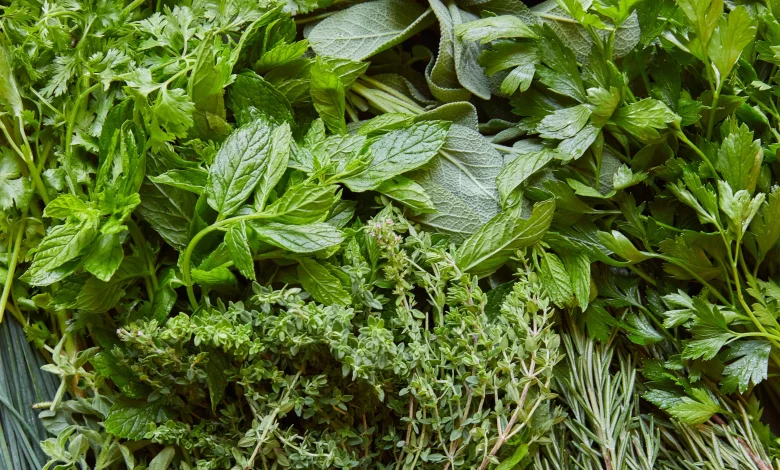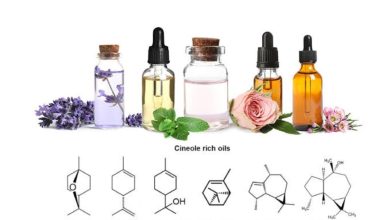Top 25 Herbs For High Blood Pressure (+ 5 African Herbs)

High blood pressure, also known as hypertension, is a condition where the force of blood against the walls of the arteries is consistently too high. This can cause damage to the arteries and increase the risk of serious health problems such as heart disease, stroke, and kidney failure.
Blood pressure is measured in millimeters of mercury (mm Hg) and is expressed as two numbers, systolic and diastolic. The systolic pressure is the pressure when the heart beats and pumps blood, while the diastolic pressure is the pressure when the heart is at rest between beats.
A normal blood pressure reading is considered to be less than 120/80 mm Hg. A reading between 120/80 mm Hg and 139/89 mm Hg is considered prehypertension, while a reading of 140/90 mm Hg or higher is considered high blood pressure.
There are many factors that can contribute to high blood pressure, including obesity, lack of physical activity, smoking, stress, and a diet high in sodium. Treatment for high blood pressure may include lifestyle changes such as exercise and diet modifications, as well as medications such as ACE inhibitors, beta-blockers, and diuretics. It is important to manage high blood pressure, as it can increase the risk of serious health problems if left untreated.
Herbs and High Blood Pressure
Herbs have been used for centuries to treat various health conditions, including high blood pressure. In traditional medicine systems such as Ayurveda, Traditional Chinese Medicine, and Native American medicine, various herbs, and plants have been used to manage hypertension.For example, in Ayurveda, herbs such as Brahmi, Ashwagandha, and Shankhapushpi have been used to help lower blood pressure. In Traditional Chinese Medicine, herbs such as Danshen, Gou Teng, and Chuan Xiong have been used for their blood pressure-lowering effects.
In modern times, scientific research has also explored the use of herbs for high blood pressure. Studies have shown that some herbs, such as garlic, hawthorn, and olive leaf extract, may have blood pressure-lowering effects. However, more research is needed to fully understand the effectiveness and safety of these herbs for managing hypertension.
It is important to note that herbal remedies should not replace prescribed medications without consulting a doctor first, as herbs can interact with other medications and have potential side effects. It is also important to ensure that the herbs are obtained from a reputable source and are used in the correct dosage.
Best Herbs For High Blood Pressure
Here are the top 25 herbs that have been traditionally used for managing high blood pressure:
1. Garlic: Garlic has been traditionally used for its blood pressure-lowering effects. Studies suggest that it may help relax blood vessels and improve blood flow.
2. Hawthorn: Hawthorn is an herb that has been used for centuries to support heart health. It is thought to work by dilating blood vessels and improving blood flow.
3. Olive leaf: Olive leaf extract has been shown to have blood pressure-lowering effects in some studies. It is thought to work by relaxing blood vessels and reducing inflammation.
4. Cat’s claw: Cat’s claw is a herb that has been traditionally used in South America for its anti-inflammatory and immune-boosting properties. Some studies suggest that it may have blood pressure-lowering effects.
5. Ginkgo biloba: Ginkgo biloba is a herb that has been traditionally used to support cognitive function. It may also have blood pressure-lowering effects by improving blood flow and reducing inflammation.
6. Yarrow: Yarrow is a herb that has been used for centuries for its medicinal properties. Some studies suggest that it may have blood pressure-lowering effects.
7. Celery seed: Celery seed extract has been shown to have blood pressure-lowering effects in some studies. It is thought to work by relaxing blood vessels and reducing inflammation.
8. French lavender: French lavender essential oil has been shown to have blood pressure-lowering effects in some studies. It may work by reducing stress and promoting relaxation.
9. Mistletoe: Mistletoe is a herb that has been traditionally used to support heart health. It may work by dilating blood vessels and improving blood flow.
10. Ginger: Ginger is a spice that has been used for its anti-inflammatory and digestive properties. Some studies suggest that it may have blood pressure-lowering effects.
11. Cinnamon: Cinnamon is a spice that has been traditionally used for its medicinal properties. Some studies suggest that it may help lower blood pressure by improving blood vessel function and reducing inflammation.
12. Turmeric: Turmeric is a spice that has anti-inflammatory properties. Some studies suggest that it may have blood pressure-lowering effects by improving blood flow and reducing inflammation.
13. Cardamom: Cardamom is a spice that has been traditionally used for its medicinal properties. Some studies suggest that it may have blood pressure-lowering effects.
14. Hibiscus: Hibiscus tea has been shown to have blood pressure-lowering effects in some studies. It may work by dilating blood vessels and reducing inflammation.
15. Passionflower: Passionflower is a herb that has been traditionally used for its calming properties. It may help lower blood pressure by reducing stress and promoting relaxation.
16. Skullcap: Skullcap is a herb that has been traditionally used for its calming properties. It may help lower blood pressure by reducing stress and promoting relaxation.
17. Valerian: Valerian is a herb that has been traditionally used for its calming properties. It may help lower blood pressure by reducing stress and promoting relaxation.
18. Motherwort: Motherwort is a herb that has been traditionally used for its calming properties. Some studies suggest that it may have blood pressure-lowering effects.
19. Reishi mushroom: Reishi mushrooms have been traditionally used in Chinese medicine for their medicinal properties. Some studies suggest that they may have blood pressure-lowering effects.
20. Ashwagandha: Ashwagandha is a herb that has been traditionally used in Ayurvedic medicine for its stress-reducing properties. It may help lower blood pressure by reducing stress and promoting relaxation.
21. Brahmi: Brahmi is a herb that has been traditionally used in Ayurvedic medicine for its cognitive-enhancing properties. Some studies suggest that it may have blood pressure-lowering effects.
22. Gotu kola: Gotu kola is a herb that has been traditionally used in Ayurvedic medicine for its cognitive-enhancing properties. Some studies suggest that it may have blood pressure-lowering effects.
23. Rhodiola: Rhodiola is a herb that has been traditionally used in traditional medicine for its stress-reducing properties. Some studies suggest that it may have blood pressure-lowering effects.
24. Siberian ginseng: Siberian ginseng is a herb that has been traditionally used in traditional medicine for its immune-boosting properties. Some studies suggest that it may have blood pressure-lowering effects.
25. Green tea: Green tea is a popular beverage that contains compounds known as catechins, which have been shown to have blood pressure-lowering effects in some studies.
It is important to note that while these herbs have been traditionally used for managing high blood pressure, scientific evidence for their effectiveness is limited, and they may not be suitable for everyone. It is always important to consult with a healthcare provider before using any herbal remedy.
African Herbs for High Blood Pressure
There are several African herbs that are traditionally used for managing high blood pressure. Here are a few examples:
1. African basil: Also known as Ocimum gratissimum or “scent leaf,” African basil is a common herb in African traditional medicine. It has been shown to have blood pressure-lowering effects in some animal studies.
2. Griffonia: Griffonia is a plant that is native to West and Central Africa. It contains a compound called 5-HTP, which has been shown to have blood pressure-lowering effects in some studies.
3. Kola nut: Kola nut is a caffeine-containing nut that is native to West Africa. It has been traditionally used to improve energy levels and cognitive function, but some studies suggest that it may also have blood pressure-lowering effects.
4. Moringa: Moringa is a tree that is native to South Asia and Africa. It has been traditionally used for its medicinal properties, and some studies suggest that it may have blood pressure-lowering effects.
5. Rooibos: Rooibos is a tea made from the leaves of a South African plant. It contains compounds called polyphenols, which have been shown to have blood pressure-lowering effects in some studies.
It is important to note that scientific evidence for the effectiveness of these herbs in managing high blood pressure is limited, and they should not be used as a substitute for medical treatment. Additionally, these herbs can interact with other medications and have potential side effects, so it is important to use them under medical supervision.





